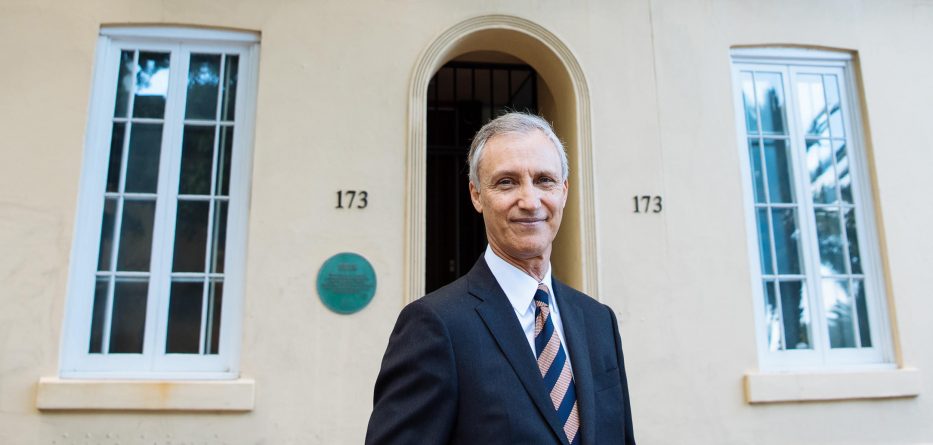The CEO of the Ramsay Centre for Western Civilisation addressed Campion College’s new liberal arts graduates at St Patrick’s Cathedral, Parramatta on Wednesday 13 December 2017.
The two institutions have complementary missions in promoting the value of Western civilisation through the study of the liberal arts, which includes the West’s literary, philosophical, theological and artistic heritage.
Most Rev Richard Umbers, Auxiliary Bishop of the Archdiocese of Sydney celebrated Mass on the occasion of the graduation and preached on youth and their potential to transform common culture.
View images from the Campion College 2017 Graduation below or click here.
https://www.flickr.com/photos/parracatholic/albums/72157663816339238
Members of the College Board and the Academic Faculty were joined by guests of honour including Professor Anthony Shannon, Professor David Flint, Christopher Flynn, Richard Flynn, Giles and Annouchka Auty.
Simon Haines is CEO of the Ramsay Centre for Western Civilisation and was occasional speaker.
Professor Haines completed a doctorate at Oxford University in Romantic poetry of the early 1800s, “which sounds as remote from reality as you can get,” he joked to the audience in St Patrick’s Cathedral, Parramatta.
Professor Haines explained the benefits of the humanities for character development and career, his own career spanning banking, diplomacy, economics and academia.
He promised graduands that after studying the liberal arts, the thread from “romantic poetry to merchant banking makes more sense,” and alluded to Steve Jobs’ preference for liberal arts graduates above vocational degree specialists.
Beyond professional benefits, the development of the mind promoted by liberal arts education is not less important than skills training, it is “far more important,” Professor Haines said.
The address concluded with a humourous adaptation of the Beatitudes with Christ as a lecturer and the disciples as utilitarian modern students, asking such questions as ‘will this be in the exam?’ The result was “Jesus wept” (John 11:35), reflecting the possible experience of many lecturers in Australia today.
Professor Haines granted Catholic Outlook an interview about the work of the Ramsay Centre, which recently announced a partnership with the Australian National University to found a Bachelor of Arts in Western Civilisation.
“It will be a great books style degree and be part of the existing structure of universities,” he said.
Great books programs are important to prominent American institutions, such as the University of Chicago, Fordham, Columbia University and St John’s College, Maryland.
Great books programs typically include Homer, Plato, Aristotle, Virgil, Marcus Aurelius, sacred scripture, St Augustine, Chaucer, Machiavelli, St Thomas More, Shakespeare, Milton, Jane Austen and modern writers.
The Ramsay Centre’s new degree will insert an American style liberal arts degree into the British style Australian university, especially focussing on double degree study options.
“It’s a game changer,” Professor Haines said, “this is quite radical and quite exciting.”
“One good thing about the scholarships is we can help students from lower socio-economic backgrounds.”
The Ramsay Scholarships will support the growing interest in the West’s intellectual, spiritual and artistic heritage.
Teaching in Hong Kong exposed Professor Haines to the East’s thirst for knowledge of the West.
He told Catholic Outlook about a student of his from mainland China who experienced studying literature for the first time without compulsory Marxist components.
“She was amazed and so thrilled, saying ‘it’s so nice to hear about these poets without the Marxism’,” he said.
“In many cases, what they would have studied would be quite a limited curriculum.”
The Ramsay Centre’s educational program will have a broad curriculum in the ‘best which has been thought and said in the world’.
“We’re hoping for this to be non-ideological; putting the focus on the Great Books.”
For more information about the Ramsay Centre for Western Civilisation, visit ramsaycentre.org








